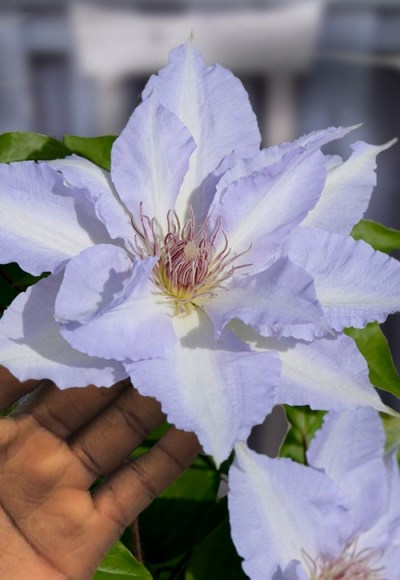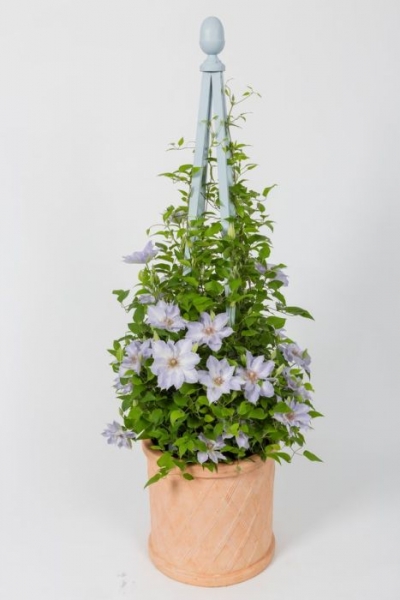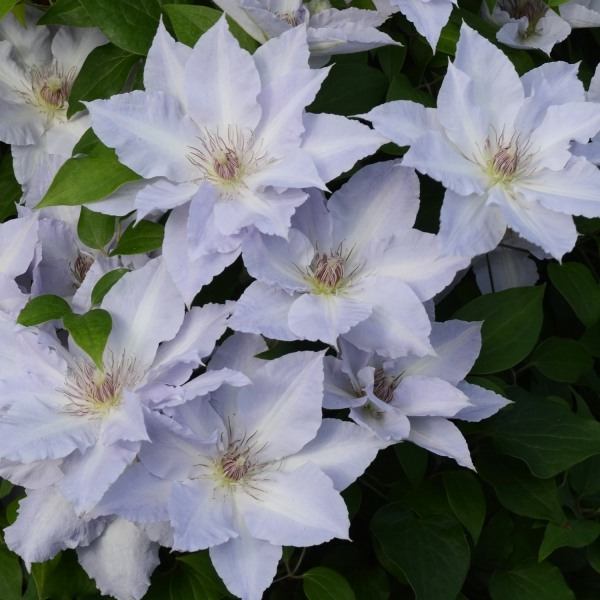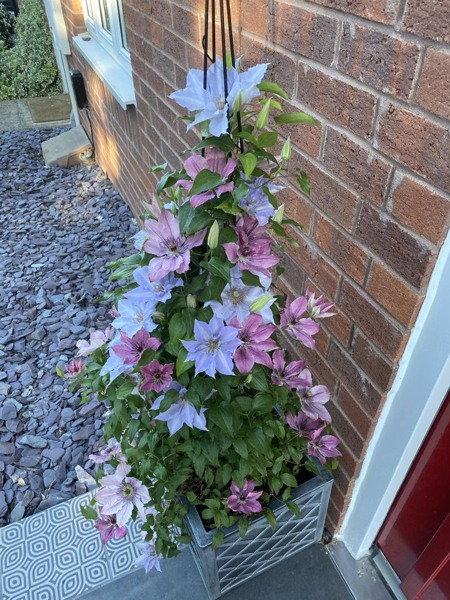Tranquilite Clematis
| clematis | vine |
It is a perennial, flowering vine, see how the Tranquilite clematis looks like in the garden and landscape.
Tranquilite Clematis is suitable for growing in USDA hardiness zones: 4a, 4b, 5a, 5b, 6a, 6b, 7a, 7b, 8a, 8b, 9a, 9b. Other winter zone scales for planting this clematis are ANBG: 1, 2, 3; RHS: H7, H6, H5, H4, H3; PHZ: 5a, 5b, 6a, 6b, 7a, 7b, 8a, 8b, 9a.
Clematis details
| Plant type | vine, flowering | ||||||||
| Life cycle | perennial | ||||||||
| Sun needs | part shade, full sun, part sun | ||||||||
| Growth habit | climbing, twining | ||||||||
| Flowering period | spring, summer, late summer, early fall | ||||||||
| Height at maturity | 1 m - 2 m | ||||||||
| Spread | 60 sm - 1 m | ||||||||
| Spacing | 90 sm apart to cover fences and walls | ||||||||
| Soil type | loamy, sandy, clay, silty | ||||||||
| Soil moist/drainage | well drained moist | ||||||||
| Soil PH | 5.5 - 7.0 (moderately acidic - neutral) | ||||||||
| Water needs | average | ||||||||
| Maintenance / care | low | ||||||||
| Resistance to | deer, disease, heat, insect, humidity | ||||||||
Winter hardiness zones:
| |||||||||
 Tranquilite Clematis is a flowering vine, one genus of about 380 species within the buttercup family. As all of clematis, Clematis Evipo0111 Tranquilite is a vigorous, woody, climbing vines / lianas. The woody stems are quite fragile until several years old.
Tranquilite Clematis is a flowering vine, one genus of about 380 species within the buttercup family. As all of clematis, Clematis Evipo0111 Tranquilite is a vigorous, woody, climbing vines / lianas. The woody stems are quite fragile until several years old.
Flowering period for Evipo0111 Tranquilite is from late spring to early summer and again in late summer to early fall.
Clematis Evipo0111 Tranquilite tolerates dry periods when established, so an occasional watering in prolonged periods of dry weather is ok.
Heavy clay soil should be amended to ensure good drainage, loamy, sandy and silty soil os ok.
The Tranquilite Clematis is a perfect candidate to bring some extra serenity and calm to any outdoor space. In late spring to early summer and again in late summer to early fall, from top to bottom of the vine Tranquilite features a profusion of lovely star-shaped flowers with overlapping soft blue to lavender-blue petals with a wide white bar down the center. This flowers attracts butterflies, hummingbirds and beneficial pollinators, so you can be enjoyed these close up.
Pruning clematiss vines consists of removing weak and crossing shoots then thinning down the plant to a structure of evenly spaced one and two year old stems. Alternatively, you can often force a flush of new growth from the base by cutting the vine back to 18 inches immediately after the flush of bloom.
An alternate method of pruning is to prune only every three or four years. In this case, clematis will produce a weak first flush of flowers in the summer after pruning.
Tranquilite Clematis @ wikipedia.
Tranquilite Clematis in the landscape and gardening
Also clematis species
Also honeysuckle species
Also grape species
Also hydrangea species
Also jasmine species
Also vine species
| 1 | Clematis is toxic to dogs, cats, horses |



















































